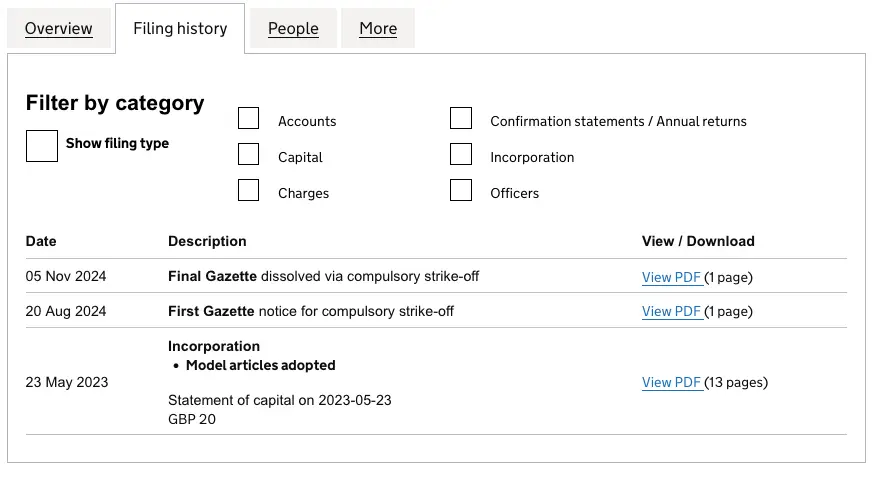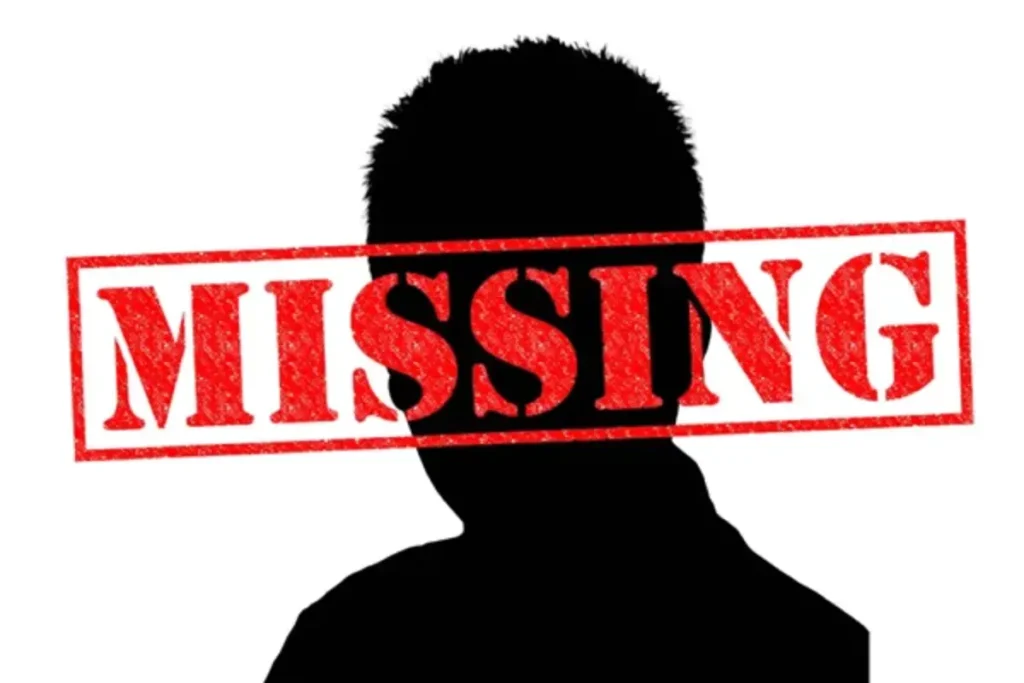In a recent video addressing criticism, Ryan Stewart, a senior member of Darren Campbell’s FBA Brand Builder team, appeared to be recording while driving—a practice that's both dangerous and illegal in the UK.
If you witness such behavior, you can report it to the Police Service of Northern Ireland (PSNI) by calling their non-emergency number, 101, or by submitting details through their online reporting system at PSNI Report.
This reckless decision sets the tone for a program where accountability seems to be a one-way street. In the video, Ryan called on clients to take responsibility for their own decisions and actions. But stories like Kirsty’s reveal a different reality—one marked by negligence, mismanagement, and broken promises.
While Darren’s team preaches accountability, it’s often clients like Kirsty who are left dealing with the fallout of the program’s failures.
I just wanted to jump on here really quickly to talk about a few things and address some recent events. There’s been a lot of outside noise recently, especially last night, and I’ve seen some really hurtful things being said about people. I wanted to share my side of things for anyone who cares.
Bad news travels fast—I’m very aware of that. I post success stories here every Monday, and I always see the same people liking and supporting those posts. Yet, the moment a bad review or negative story surfaces, some people are quick to jump on it, share it with me, and spread it around. As disappointing as that is, I understand that’s just the way things often work, maybe in this town or in general.
For context, we were working with the person in question. We’ve never turned our back on anyone—that’s not what we do. We always try to help as best as we can, unless someone decides to turn their back on us, which may be the case here. Some of the things being said—like becoming homeless or losing a family home—are deeply concerning. But my question is this: why would anyone enter into an investment, knowing it carries risks, if losing their home or putting their family’s future at stake was a possibility?
You need to take accountability for the decisions you make. We are all building our businesses and brands, and there are no guarantees of success. This should be seen as an investment, something that has been emphasized many times before. I see this process similarly to running my Amazon brand. For example, when I receive one-star reviews, I use them as feedback to improve. It’s about being humble enough to identify issues, learn from them, and ensure they don’t happen again.
At the same time, I look at the five-star reviews. I’ve received over 300 five-star reviews across my products, which tells me I’m doing something right. It shows that people appreciate the product, that I’m achieving the goals I set out for myself. This is no different from what we’re doing here. Some people will thrive, and others won’t—that’s just the reality of business. However, as long as the majority are succeeding, building something sustainable, and finding opportunities to change their lives, that’s what matters most.
This morning, I received a message from a gentleman that really reinforced why I do what I do. It wasn’t solicited—it came straight from the heart. It reminded me of the positive impact we’re making and gave me the passion to keep helping people. That’s what I’ll always strive to do.
I just wanted to share this for anyone who might care to hear both sides of the story. Please remember, there are always two sides.
Let’s keep going.
"300 five-star reviews" - Let's not forget how the team actively encourages fake reviews.
Big Promises, Minimal Support
Darren’s team promises expert guidance from “Brand Managers” and PPC specialists who will handle the complexities of building a brand, freeing clients to focus on growth. The messaging suggests that participants can rely on experienced professionals to guide them every step of the way.
Kirsty believed these assurances and joined the program with high hopes. She expected personalized support, professional account management, and a team that understood the nuances of running a successful Amazon FBA business. But the reality didn’t match the glossy marketing.
Instead of receiving the expert help she was promised, Kirsty discovered costly mistakes in her account, including poorly managed PPC campaigns that drained her budget. Even basic details, like her product costs, were overlooked—making it impossible to calculate profitability. Worse still, Kirsty’s Brand Manager was often unresponsive, leaving her to chase down updates and resolve issues on her own.
As we’ve previously reported, some of these Brand Managers are failed business owners themselves. How can clients trust their advice when the people managing their accounts couldn’t succeed in the same business model? It raises serious questions about the program’s vetting process and whether these “experts” are equipped to provide the guidance clients are paying for.
The gap between what’s advertised and what’s delivered is glaring, leaving many clients, like Kirsty, not only frustrated but also questioning where the accountability lies. If the program’s core selling point is expert support, how is it fair to blame clients when things go wrong?

13 Ad Campaigns Burning Money
When Kirsty reviewed her Amazon account, she discovered 13 active ad campaigns draining her budget with no clear direction or strategy.
“There were 13 live ad campaigns running, wasting thousands of dollars. None of them were performing.”
PPC advertising is critical for success on Amazon, and Darren’s program positions its team as experts who handle these campaigns so clients don’t have to.
But in Kirsty’s case, the campaigns were mismanaged, unmonitored, and ultimately wasted thousands of dollars—leaving her with little to show for her investment.

“They Didn’t Even Know How Much My Product Cost”
A foundational part of running a profitable Amazon business is understanding your product costs and margins. Yet Kirsty discovered her team didn’t even have this basic information.
“They didn’t even know how much my product cost, which is kind of important when you’re trying to make a profit.”
This isn’t just an oversight—it’s a critical failure. Without this information, how can the team set realistic budgets, manage PPC campaigns, or help Kirsty turn a profit?
An Absent Brand Manager
Kirsty’s assigned Brand Manager, Jordan, was supposed to be her main point of contact, guiding her through challenges and keeping her brand on track. Instead, she was left stranded.
“Jordan was supposed to be my point of contact, but he wasn’t active on my account. I was left with no one to guide me.”
Despite Kirsty repeatedly asking for calls with the team, meeting invites were often sent late—or not at all. Her messages went unanswered, leaving her stuck without the guidance she was promised.
Brand Managers are touted as the cornerstone of Darren’s program, promising hands-on, personalized support. But Kirsty’s experience highlights a troubling pattern—clients are often left to fend for themselves, even after paying thousands of pounds for expert help.
Who’s accountable when the team fails to show up? Certainly not the clients left picking up the pieces.

Darren’s Messaging vs. Reality
Ryan Stewart’s video calls for client accountability, but Darren Campbell’s marketing tells a different story. His messaging is full of success stories and big revenue figures, creating the impression that success is almost inevitable if you join the program.
For Kirsty, though, the reality was the opposite.
“I joined this program truly believing I could improve my family’s life. Instead, I’m left stressed, in debt, and with no idea how to move forward.”
Kirsty didn’t walk into this blindly. She trusted the promises of expert support and took a leap of faith, only to find herself abandoned and overwhelmed.

Pressure Tactics and Empty Promises
The program’s onboarding process only adds to the frustration. Kirsty was told spaces were limited, creating urgency to sign up quickly. She was shown glowing testimonials and success stories with impressive revenue figures, all designed to make the program seem like a surefire path to financial freedom.
But once she was in, the reality looked very different:
- Ad campaigns wasted her money without oversight.
- Her Brand Manager disappeared, leaving her with no guidance.
- Critical details like product costs were ignored, making profitability impossible.

Who’s Really Accountable Here?
Ryan Stewart’s video shifts the blame onto clients, but the truth is that Darren’s program consistently fails to deliver the support it promises:
- Neglect from Account Managers: Kirsty’s Brand Manager disappeared, leaving her without the guidance she paid for.
- PPC Mismanagement: Thirteen poorly performing ad campaigns drained her budget, with no action from the “experts.”
- Critical Oversights: The team failed to account for her product cost, a fundamental piece of running a profitable Amazon business.
Lack of Accountability: Darren’s Own Words on Lying to AMEX
While Ryan and Darren preach about the importance of accountability, one has to wonder where that accountability was when the Belfast Telegraph reported on Darren instructing clients to lie on AMEX card applications. Darren responded with threats of a multi-million-pound lawsuit—a legal action that, unsurprisingly, has yet to materialize.
But if Darren wants to claim that all accusations against him are baseless, let’s let his own words speak for themselves.

Here’s what Darren told Kayleigh, a client who was working on her own brand at the time and later joined his team after her brand failed:
I wouldn't even put 35 grand, 35 grand, if you put a 35 grand below, I'll flag up that you've been rejected. Even if you're not, put 36, 37, 38, Kayleigh. I want you to put on the turnover, just the turnover on that, put in 150k or 200k."
Don’t believe us? Listen to the recording now:
Who's accountable here, Ryan? This isn’t just unethical; it’s outright fraudulent. Darren’s advice places clients in direct violation of financial compliance rules, exposing them to severe repercussions. And yet, he positions himself as a mentor of integrity while blaming clients like Kirsty for their lack of success.
If Darren wants to dispute these claims, perhaps he should listen to the recording of his own words and take accountability for the damaging advice he has given. Until then, his lectures on responsibility ring hollow.
Selling a Dream, Delivering a Nightmare
Kirsty’s experience isn’t unique. Her story is part of a broader pattern of clients misled by Darren’s marketing. His messaging relies on cherry-picked success stories to sell the dream of financial freedom.
When the program fails to deliver, clients like Kirsty are left with the financial and emotional fallout, while the team shifts the blame onto them.
The Human Cost
For Kirsty, trusting Darren’s program has been devastating. Instead of building a better future for her family, she’s been left in financial distress, trying to recover from the program’s failures.
“I’ve wasted thousands of dollars following their guidelines. It’s been an absolute joke.”
Her story is a stark reminder of the human impact of Darren’s program. Behind every motivational post or glowing testimonial lies a pattern of mismanagement, neglect, and broken promises.

Accountability Starts at the Top
Ryan Stewart’s video may call for clients to take responsibility, but Darren’s team needs to take a hard look at their own accountability.
- They sold Kirsty—and countless others—a dream of financial freedom and expert support.
- They failed to provide even the most basic level of service.
- When those failures became evident, they blamed clients instead of owning their mistakes.
If Darren and his team want to talk about accountability, they need to start with themselves. Until they do, their promises of life-changing success will continue to ring hollow for the clients they’ve let down.

